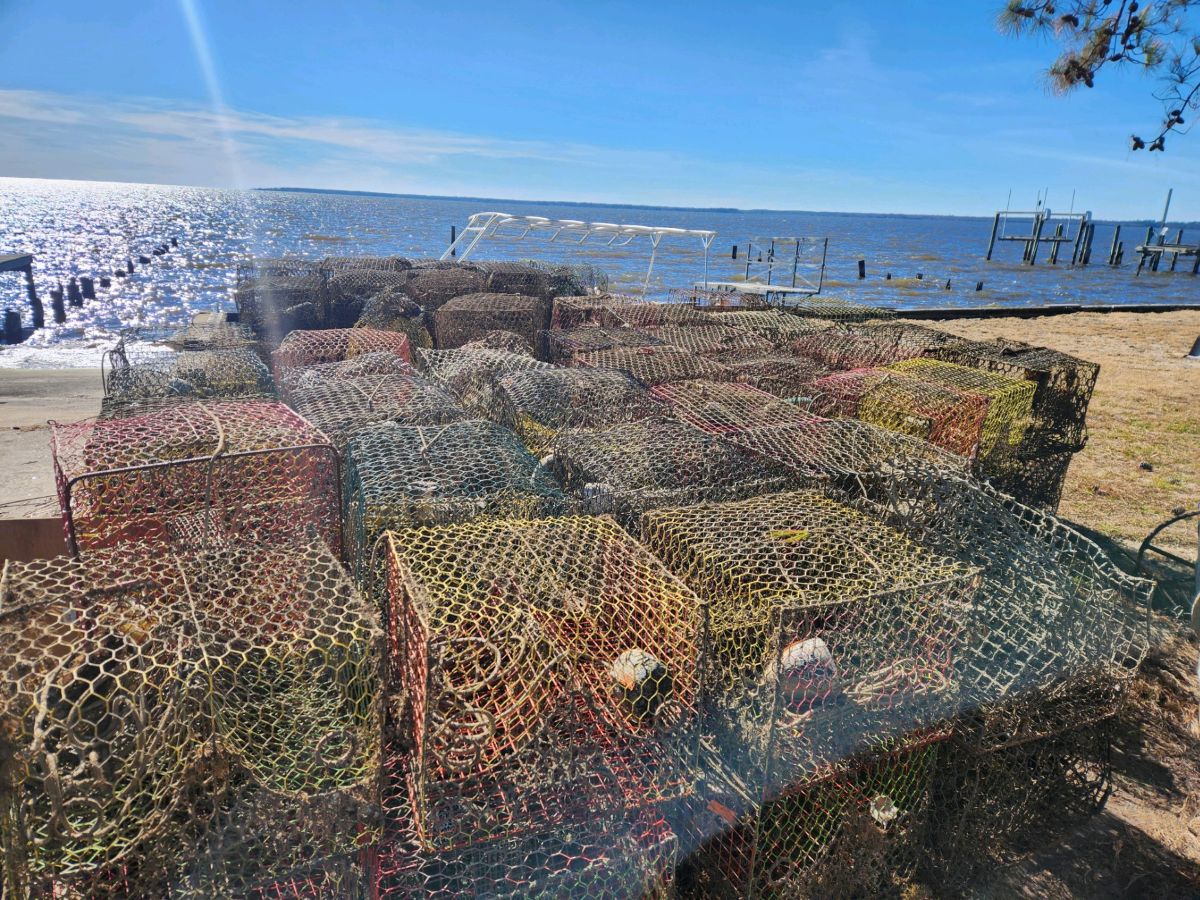
The North Carolina Coastal Federation will accept applications from commercial fishermen and women until Dec. 15 for the upcoming effort to collect lost and abandoned gear in the state’s sounds.
The nonprofit organization hires the extra hands for the Lost Fishing Gear Recovery Project that takes place in January, when internal coastal waters are closed annually to all crab, eel, fish and shrimp pots north and east of the Highway 58 bridge over Bogue Sound to Emerald Isle.
Supporter Spotlight
Application can be filled out and submitted on the Coastal Federation’s website. Captains must have a valid North Carolina standard commercial fishing license.
The 2025 project begins in January in parts of Marine Patrol districts 1 and 2, the northeast and central regions of the coast, respectively. Marine Patrol District 3, which covers the southeast region of the coast, closes from March 1-15. Recruitment for applications for District 3 will take place early next year.
Once the pots are collected, they are recycled to the best extent possible. Crab pots that are recovered from the Albemarle and Pamlico sounds during the project will be available for the rightful property owners to reclaim in early February.
The organization has led the project since 2014. In 2024, 2,463 pots from select areas within three Marine Patrol Districts were removed.
This project is funded by the N.C. Commercial Fishing Resource Fund Grant Program funds the project intended to improve habitat and water quality and support coastal economies.
Supporter Spotlight
Sara Hallas Hemilright, Coastal Federation education and outreach director, said in a release that she is grateful for the community partnerships that enable this program to continue to clean up the waterways and create opportunities for work during the winter.
“I’m appreciative of the strong partnerships we’ve formed with commercial fishers over the years. Their expertise in our local waterways is what continues to make this project successful. Their strong work ethic is essential to endure long, cold days working on the water in January. I’m proud to be involved in this project and see so many positive impacts as a result,” Hemilright said.
This project is part of the Coastal Federation’s overall effort to ensure the North Carolina coast is free of marine debris. The organization will be working on preventative strategies in the coming year as part of a major goal to create a coastal environment free of marine debris.







